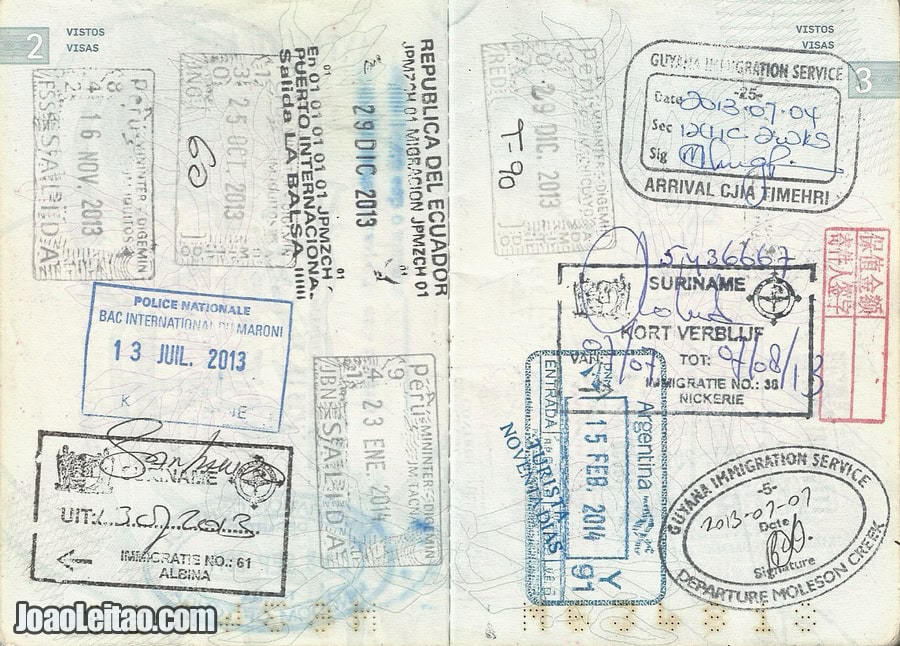Table of Contents
Guide to Couchsurfing

Couchsurfing is an online community of people who like to travel, where members can look for or offer accommodation based on the principles of hospitality.
The absence of financial interest is one of the cornerstones of this community. People let strangers stay in their homes just because they like to help out or enjoy getting to know travelers and hear their stories. Others are looking for friends or a way to change their life’s routine.
On the other hand, travelers get free shelter that can come with many more advantages.
What is Couchsurfing?

Couchsurfing is not the first community of its kind. Another project born in Europe and called Hospitality Club, is a little older but lost popularity over time. It still exists today, but it’s obsolete and practically has no members.
Couchsurfing is here to stay. It started in 1999 when a North-American developer called Casey Fenton hacked the database in a college in Iceland to email all students asking for a place to stay during his trip. The positive response was so overwhelming that he started Couchsurfing after returning to the United States.
However, it took another five years for the idea to take shape. The website launched in 2004 but despite a promising start, a series of events led to the almost complete destruction of their database in June 2006. The founder announced the end of his dream, but the platform users rallied and managed to recover the lost data.
A huge change happened in 2011. Couchsurfing went from a not for profit to a for-profit company. A lot of the older members left the community at that time, but the project is still around and thriving.
Saving Money is not All!
You’ve figured out by now that Couchsurfing allows you to not worry about a significant portion of your budget. No more accommodation expenses. For most veteran Couchsurfers, saving money is appreciated, but that’s not the platform’s main advantage.
Couchsurfing’s top selling point is the experience of spending time with locals when traveling. Although there are a few exceptions, people don’t want travelers to crash at their house and treat it like a free hotel. They expect some degree of interaction, that changes from person to person. Don’t be shy. Each member writes a thorough description of what’s expected of you as a guest. If not, you’ll get there by intuition. You can feel what’s expected of you and find out if the host wants to be left alone or is up to showing you around.
Staying with locals increases the potential of having unique experiences. Suddenly you’re attending a traditional wedding or eating at a small tavern in a village in the middle of the mountains. Things you wouldn’t have access to if you traveled like everyone else and stayed in hotels.
Can You Find it Anywhere in the World?
Not really. There are countries where Couchsurfing practically doesn’t exist, for many reasons. In most cases, these are countries with financial struggles where young people can’t afford to move out of their parents’ house and have a place of their own. Some other places, it’s illegal like in Cuba, Iran (although you’ll still find some active members), or Myanmar. In some cases, they simply haven’t heard of Couchsurfing, like in smaller countries without many tourists. Lastly, and this is rarer, it’s connected to local culture. And by rare I mean hospitality is an ancient principle that is common in all cultures around the world.
If you do it right, you’ll have free accommodation in most of Europe (it will be harder in countries like Albania and Montenegro), in North America, in the main cities in Latin America and Asia, and even in Africa. But if you’re planning a trip across South America, don’t expect to find a couch in the small towns you’ll most likely have to spend the night.
Touristy cities can also be tricky. In places like Prague, Paris, London, and Rome hosts might get tired of high demand that could mean hundreds of requests every week.
Isn’t it Dangerous?
It’s not more dangerous than living in general. Of course in such a big community that spreads all over the world, there are bound to have people with wrong intentions. But the website as a review system where people can tell what they thought about their previous interactions. So, if you’d like to give it a try but aren’t too sure about it, there’s a simple solution: at least in the beginning interact only with certified members who have a solid reputation and a lot of testimonials.
The first contact and the first message will also tell you a lot about the personality of whoever is on the other side. Remember, you don’t have to host someone or stay with someone if your gut feeling tells you otherwise. What you should never do is say yes and back out the last minute unless you have strong reasons to do so, of course.
Tips to Get Hosted on Couchsurfing

Before you start, please note that you’re not entitled to be accepted as a guest, nor is it guaranteed. As you become better at this, your chances to succeed will grow. You’ll gain references as you get better at understanding the platform and the rules of the community. For now, here are some tips for success.
1. Make Your Request Personal
One of the main reasons why your request will be denied is the lack of a personal touch: your copy/pasted a message and sent it to a large group of potential hosts
If you make your request personal, in a way that the person on the other side feels their talking to a human being instead of feeling they’re on the receiving end of a chain email, you have better odds.
2. Read the Profiles Carefully
It’s not only important to read the members’ profiles carefully, but it’s essential. Firstly, to avoid unpleasant surprises. Couchsurfing is a flexible community where you can find a lot of different things and meet a lot of different people. Almost everything is allowed, as long as it’s clearly mentioned in the profile. For example, do you know there’s a well-known Italian member who only takes guests who are willing to fight him at a judo dojo? Now imagine the situation where you request him to host you without reading the conditions…
On the other hand, it’s unnecessary and unpolite to request to stay at someone’s house who can’t or won’t host you for whatever reason. For example, if a member is only available to host you for two nights tops, it doesn’t make sense to request them to stay for four nights.
In addition to this, reading the profiles thoroughly helps you craft that personalized request and you’re halfway there to a positive outcome.
3. Complete Your Profile
When you request to stay at someone’s house, the potential host will check you out. In Couchsurfing, that means reading your profile thoroughly. If you created an account but didn’t bother to work on your profile, talking about yourself, filling all fields in the form, or uploading pictures of you, your house, and your city, then you won’t have much to show. That increases the odds of the host denying your request.
4. You Have to Give to Take
A lot of the recent members focus on the advantages of traveling while Couchsurfing, but they forget something basic: for people to travel this way, there must be others who offer their place to stay. And although it’s not mandatory, it’s almost a moral obligation that can help you when you’re looking for a place to stay.
If for some reason you can’t offer your couch, explain the reasons why in your profile. Maybe you live with relatives, and they’re not on board with this idea, or you live in a college dorm where you can’t have people over. Whatever the reason, make it clear.
5. Don’t be too demanding
If you’re looking for a host in a city with a lot of tourists, understand that the most popular profiles get hundreds of requests. In those cases, I suggest you lower the bar and not be too demanding. Maybe you won’t be able to stay in the city center, or perhaps you have to stay with someone who’s not so knowledgeable about the local community. It’s also likely that you won’t have a room to yourself.
How to Choose the Perfect Host
1. Location
Read the part of the profile that describes the accommodation conditions. Usually, that’s where people write what they can offer, which includes the house location. Location is important. If you’re visiting a city, wasting time on public transportation every day or not having access to them is the last thing you need.
2. Experience
When you’re Couchsurfing for the first time, you’ll rely on your host’s experience providing free accommodation. The feedback from previous couchsurfers should reflect how well your host does this. Read the comments thoroughly to decide if this person is the right host for you and if you’ll get along well.
3. Conditions
Diversity is one of the main features of Couchsurfing. You’ll find all sorts of different approaches to the Couchsurfing concept in the community, which translate into what conditions they offer their guests. It can range from having a complimentary piece of bread every day to your own private apartment. Read what you can expect from the host carefully. You’ll find this information in the house description and the comments of previous guests.
Some people will hand the key to their apartment to the guest and make them feel at home, rest from their trip, and without imposing a curfew or other rules. Others don’t feel comfortable letting a stranger in their home all day and expect them to leave with them every morning and return at the end of the day. Keep all these things in mind.
4. Profile
Again, read the profile of your potential host. Try to find someone with the same interests, hobbies, someone like-minded, that you think you could easily get along with. Sometimes, although rarely, all this goes wrong and although you thought you had found the perfect host for you, you simply don’t click, and you don’t have a positive experience. But it’s just a small risk to take.




